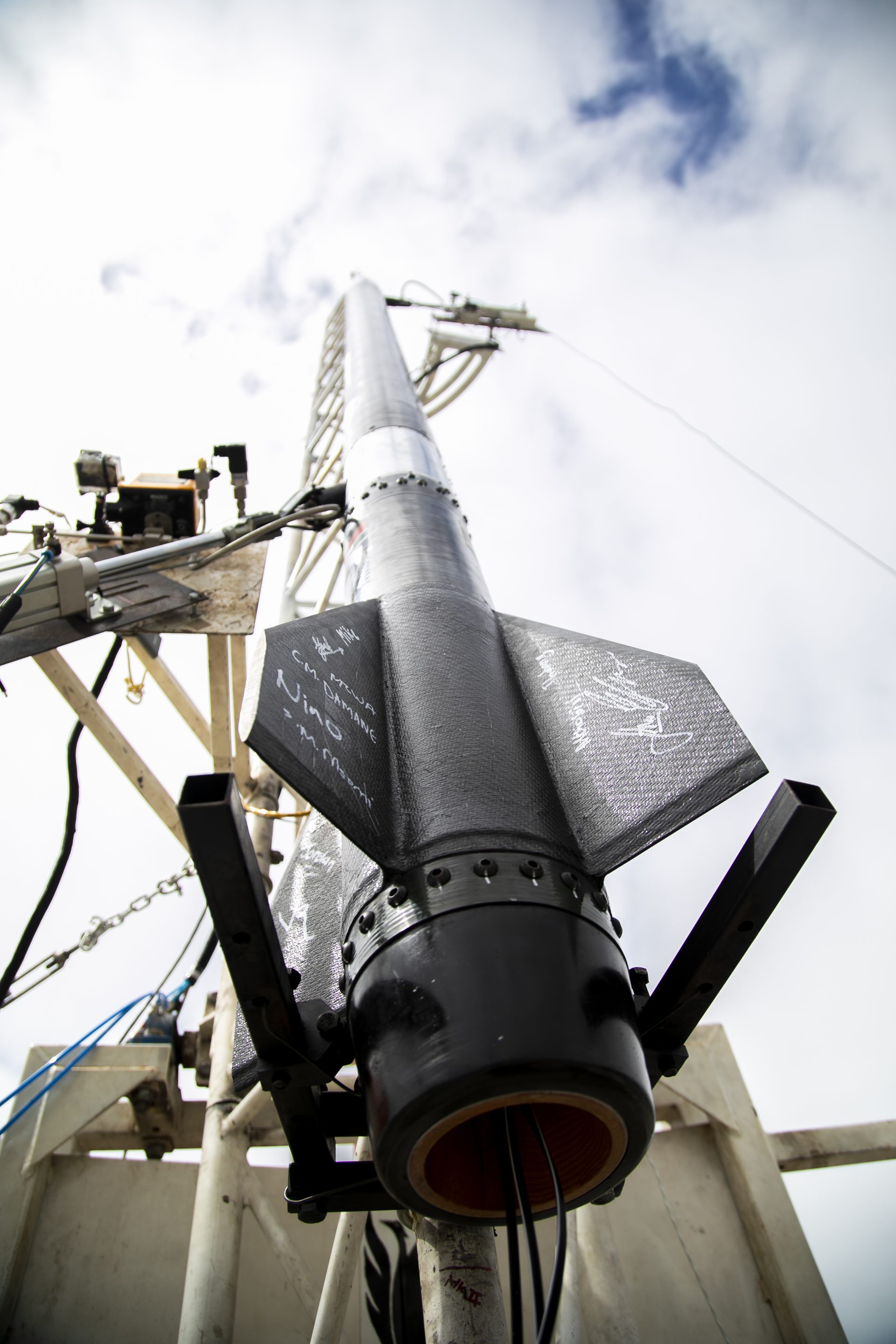
By Khulile Thwala
The only South African university pursuing an applied rocket propulsion programme has successfully launched a rocket.
On March 14, the University of KwaZulu-Natal’s Aerospace Systems Research Institute (ASRI) Space Propulsion Programme, successfully test-launched its Phoenix 1 D hybrid rocket demonstrator.
The Phoenix 1 D was carrying experimental sensors and cameras as part of the mission. The Phoenix hybrid rocket programme is driven by young mechanical engineering students at UKZN.
UKZN is currently the only university producing graduates with skills in advanced manufacturing, aerospace systems design, rocket launch operations and computational analysis.
Read More: Astronomists chart the future for the field and continent
According to a press release issued by the UKZN Department of Science and Innovation, months of hard work on the design and production elements of the Phoenix rocket, by a group of dedicated young people, culminated in an exciting launch.

The UKZN team is now preparing for the second and final test for the campaign, that of the Phoenix 1C, a low-altitude rocket. Weather permitting, it will be launched with experimental payloads for the Cape Peninsula University of Technology (CPUT), SANSA and a private company that the engineers hope to recover.
Both vehicles include design changes to the airframes and onboard systems that make them structurally more efficient and form a critical part of ASRI’s mission to develop larger orbital launch systems.
The Phoenix programme is a human capital development initiative. The programme started in 2010, has produced several graduates with advanced engineering skills, who have been absorbed into South Africa’s engineering sector with entities including Rheinmetall Denel Munition, SANSA, the CSIR and Armscor.
Human capital development is the main objective of the programme, together with developing indigenous space propulsion technologies.


